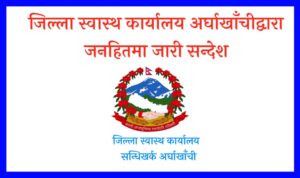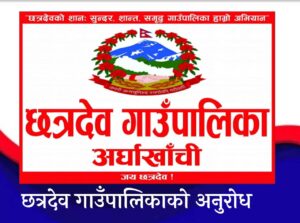By Charina Cabrido
March 28, 2014. The chime of the bell outside echoed loudly in my room. This has roused me from my sleep and welcomed me back to reality. It was a chilly morning in February 2014 and the bells ringing are signs that Hindus and Buddhist alike pay rituals to chase away power-seeking deities and summon the gods. Inside a four by six square meter room were ten women whom I share the woolen blankets with while sleeping. The stench of hanging wet socks and underwear exuded a vile odor.
It has been three days now since I was locked inside Hanumandhoka jail. Located primarily in the middle of Basantapur Durbar Square in Kathmandu, Nepal, the jail is custody for about 186 people, women, men, children and baby alike. The baby who came with the mother is 15 months old; he was fed with milk and black coffee everyday (for a fee of 15 Nepali rupees each).
My mind was spinning. How did I end up here? Three days ago, Nepali police took me forcefully inside the jail. The arrest happened after I attended the district court’s hearing on pending cases against my ex-husband. The other party did not appear, and I saw my ex-husband outside talking in his mobile phone, which lead me to the police arrest a few meters away from the court.
Despite my aggressive screams and repulsive response towards the groundless detainment, they did not present any “warrant of arrest” or showed any basis of complaint that led to my custody. Six days after, the police showed me the cybercrime charges filed by my ex-husband whom I am currently fighting in Kathmandu Court for sexual abuse and domestic violence.
As days passed, the scenes inside became worst. I became a living testament to Nepal’s police’ early morning arrests of women, men and third genders, with the latter constantly being abused and scorned. The rounds of unwarranted arrests bringing in new prisoners started at one in the morning and ended at three. I heard howling cries, beatings, shouting and murmurs of pain and grief. One Indian woman was arrested because she was “walking” late at night in Bouddhanath Square. She came in with handcuffs clasping both her hands and she was crying. The police released her the next day. The third genders was a constant target for abuses; I heard their cries and I closed my eyes to the extent on how they were verbally and emotionally ridiculed behind doors and in front of us when we had our evening roll calls. On many occasions, they were not given a room, but instead just slept in the freezing hallway with blankets.
Sometimes there were twelve of us in the room; in other days we were fourteen. Those who came in from the early morning arrest just slept sitting with their backs at the wall. In the morning and evening, we were served with “dal bhat” (mung bean soup and rice) from server boys with their hands dipped in the soup while scooping from the big pails. And when we were attacked with diarrhea and stomach problems, the police gave us medicines. Ball pens, paper, rubber bands and mobile phones were not allowed inside the jail. Scarves and shawls were not exemptions. The mother’s shawl was captured as she tried to cover herself while nursing her 15-month baby. This made the male police pleased since they have a “view” to look as they passed by our padlocked room.
I feared for my life inside the cell for the succeeding days. Security became a serious concern as series of brawls lead to a bleeding guy’s head that was taken to the hospital. These were the same prisoners who walked past our room day and night. I cringed at their stares and I shivered every time the police pummeled his baton in our jail cell just to scare us.
Taking a shower was like a shot at the moon, the doors were open and used by male and female. The only refuge for us was a visit from our friends and family which was confined in a small room outside, with prisoners handcuffed to each other, and with the conversations lost in the air as relatives talked at the same time.
Certainly, the state of prison and prisoners in Nepal has violated major principles for the protection of persons under any form of detention or imprisonment as set by the UN General Assembly. Based on this principle, “All persons under any form of detention or imprisonment shall be treated in a humane manner and with respect for the inherent dignity of the human person”. Apparently this was not the case for all of us inside particularly the trans genders. Moreover, when I was taken to the Attorney General’s Office and was officially read with charges set against me six days after I was already detained, the police has violated the rule that “anyone who is arrested shall be informed at the time of his arrest of the reason for his arrest and shall be promptly informed of any charges against him”. More so, I was not allowed to call my family and if not for my missed dental appointment in Kathmandu, my Embassy would have not known that I was missing and was already inside the prison. Even without any legal background, any individual knows that a detained or imprisoned person shall be entitled to notify members of his family of his arrest, detention or imprisonment. I was not given that right and had to begged the police that I am given a chance to call my parents.
This is the crux of the problem. The situation in Hanumandhoka jail is similar to other prisons in Nepal where overcrowding and unsanitary conditions is a common scenario. The UN Standard Minimum Rules for the Treatment of Prisoners says that all sleeping accommodation shall meet all requirements of health particularly to cubic content of air, minimum floor space, lighting, heating and ventilation. This is not what is seemed to be in Hanumandhoka jail or the 73 prisons in various districts of the country. Based on an available statistics, of the 73 prisons in Nepal, 41 are overcrowded. Most of these have more than double the capacity. The prison in Chitwan, Nepal has capacity of 55 but is housing about 246 inmates. The delay in bringing offenders to trial is the main cause of prison overcrowding. Since the facility in Basantapur only serves as custody for offenders with cases under investigation, this makes it difficult for offenders to reintegrate back to the society as they carry the consequences of the trauma inside back to the free world once they are released. As a result, the overcrowded prison triggers tension that leads to increased disruptive social behavior, physical and psychological effects and traumatic social withdrawal.
The Asian Human Rights has reiterated that the current conditions of detention in Nepal jails do not respect the prisoners’ fundamental rights and amount to inhuman and degrading treatment. The prison act was formulated years back with Nepal as a signatory to this international obligation. However none of the provisions in the act have been implemented since the prisoners are denied even the most basic human rights. One alarming scenario is that prisoners in Hanumandhoka jail were mixed with one another despite one having HIV-AIDS and another one suffering with tuberculosis. International standards call for separation of prisoners and detainees as per the status of their case, their health conditions or their genders.
What makes my experience seemingly more disturbing was that the various unwarranted arrests made by Nepal police invited praises from the public that glorified police power to clean the streets off crime. Against the backdrop of public safety and security lies a world inside where basic human rights were not observed and where prisoners were constantly clad with fear of being tortured.
This sends out the real message to the Himalayan country. At the very least, the government is not serious about human rights, given the tenacity and spread of the culture of impunity. As the Maoist rebels who took thousands of lives from people years ago still walk freely from their crime today, the police locks and jail innocent people inside.
Although normal routines happen outside where bells are rang to summon gods and drive evil spirits; this does not free the prisoners from the nightmare. I was released from that nightmare fifteen days later, but still I bear the scars as I tell my story today.
Charina “Chin” Cabrido is an environmental researcher, a journalist and a cycling advocate from the Philippines. She writes on social issues such as women empowerment and human rights. Chin is currently a contributor for Asian Geographic Magazine, The Kathmandu Post, Everest Height, Republica, nepalnews, World Pulse and Women International Perspective.
This story was written during her 15-day custody in Hanumandhoka Jail in Kathmandu, Nepal from February 5 to February 20. The Kathmandu District Court released her from the jail.
The views expressed in this article are the author’s own and do not necessarily reflect Arghakhanchi.Com’s editorial policy.





